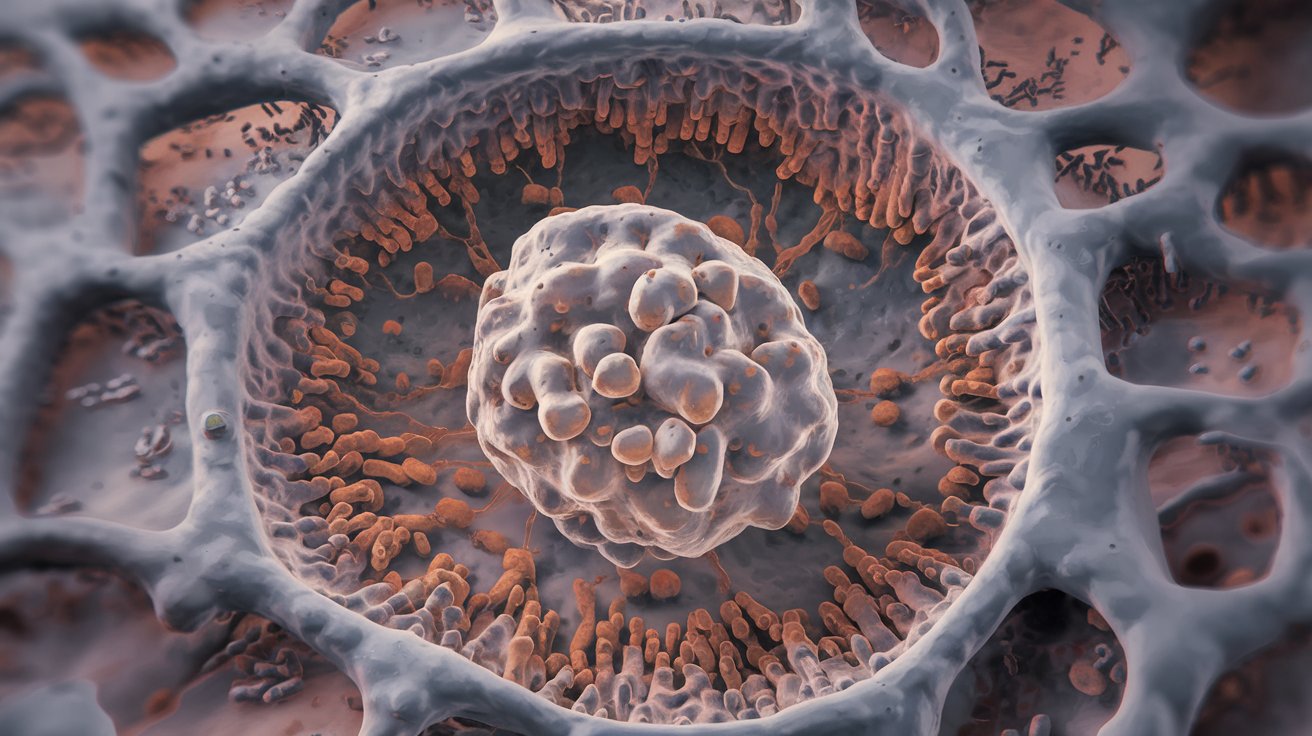
Coenzyme Q Cytochrome C Reductase Deficiency is a rare but serious condition affecting the mitochondria, the powerhouses of our cells. This deficiency disrupts the electron transport chain, leading to impaired energy production. Symptoms can vary widely, from muscle weakness and fatigue to severe neurological issues like seizures and developmental delays. Genetic mutations often cause this deficiency, making early diagnosis crucial. Understanding the roles of Coenzyme Q10 (CoQ10) and Cytochrome C Oxidase (COX) in cellular energy production can help manage and potentially treat this condition. Let's explore 25 essential facts about this complex and impactful disorder.
Key Takeaways:
- Coenzyme Q10 and Cytochrome C Oxidase are important for energy production in our cells. Deficiencies in these enzymes can cause serious health problems like muscle weakness and seizures.
- Genetic testing and family studies are crucial for diagnosing and understanding Coenzyme Q10 and Cytochrome C Oxidase deficiencies. Supportive care and future therapies are important for managing these conditions.
Understanding Coenzyme Q10 and Cytochrome C Oxidase
Coenzyme Q10 (CoQ10) and Cytochrome C Oxidase (COX) are essential for cellular energy production. Deficiencies in these enzymes can lead to severe health issues. Let's explore some key facts about these deficiencies.
-
Coenzyme Q10 (CoQ10) is an electron carrier in the mitochondrial electron transport chain. It helps transfer electrons from complex I and II to complex III.
-
Cytochrome C Oxidase (COX), also known as complex IV, is the final enzyme in the mitochondrial electron transport chain. It transfers electrons from cytochrome c to oxygen, producing ATP.
Clinical Manifestations of Deficiencies
The symptoms of CoQ10 and COX deficiencies can vary widely. Here are some common clinical manifestations.
-
CoQ10 Deficiency can present as encephalomyopathy, severe infantile multisystemic disease, nephropathy, cerebellar ataxia, and isolated myopathy.
-
Symptoms of CoQ10 Deficiency often include muscle weakness, fatigue, and neurological issues such as ataxia and seizures.
-
COX Deficiency typically presents with severe neurological and muscular symptoms, including Leigh’s syndrome, muscle weakness, seizures, and developmental delays.
-
Recurrent Neonatal Myoglobinuria is another manifestation of COX deficiency, characterized by muscle breakdown and myoglobin release into the bloodstream.
Genetic Causes of Deficiencies
Understanding the genetic basis of these deficiencies is crucial for diagnosis and treatment.
-
CoQ10 Deficiency is primarily caused by mutations in genes involved in CoQ10 biosynthesis, such as COQ2, COQ6, and COQ9.
-
COX Deficiency is often inherited in an autosomal recessive manner, requiring both parents to carry the mutated gene.
-
High Parental Consanguinity rates in COX deficiency cases support the autosomal recessive inheritance pattern.
Diagnostic Methods
Accurate diagnosis is essential for managing these deficiencies. Here are some methods used.
-
Biochemical Diagnosis of CoQ10 deficiency involves measuring CoQ10 levels in blood mononuclear cells, skeletal muscle, and plasma using high-performance liquid chromatography (HPLC).
-
Molecular Diagnosis for COX deficiency involves sequencing genes like MT-CO1 and MT-CO2 to identify specific mutations.
Treatment Options
While treatment options are limited, some approaches can help manage symptoms and improve quality of life.
-
CoQ10 Supplementation can potentially improve the clinical status of patients with CoQ10 deficiency, though effectiveness varies widely.
-
Supportive Care is the primary treatment for COX deficiency, including physical therapy, nutritional support, and symptom management.
-
Gene Therapy and Stem Cell Transplantation are potential future treatments for COX deficiency, aiming to replace or repair defective genes or cells.
Heterogeneity and Variability
Both CoQ10 and COX deficiencies exhibit significant heterogeneity and variability in their clinical presentations.
-
Clinical Heterogeneity means the same deficiency can manifest differently in different individuals, depending on the specific genetic mutation and affected tissues.
-
Biochemical Heterogeneity is observed in both deficiencies, with CoQ10 levels varying significantly among different tissues.
-
Clinical Variability is another hallmark, with the same mutation leading to different clinical presentations depending on the affected tissues and overall health.
Mitochondrial Dysfunction and Antioxidant Properties
Mitochondrial dysfunction and antioxidant properties play crucial roles in these deficiencies.
-
Mitochondrial Dysfunction is a common factor in both CoQ10 and COX deficiencies, leading to impaired energy production and increased oxidative stress.
-
Antioxidant Properties of CoQ10 help protect cells from oxidative damage by scavenging free radicals and maintaining membrane integrity.
Genetic Testing and Family Studies
Genetic testing and family studies are essential for diagnosing and understanding these deficiencies.
-
Genetic Testing involves sequencing genes involved in CoQ10 and COX biosynthesis to identify specific mutations.
-
Family Studies help confirm the diagnosis by examining multiple family members with similar symptoms and reduced CoQ10 levels or impaired COX activity.
Supportive Care and Future Therapies
Supportive care and potential future therapies are crucial for managing these deficiencies.
-
Supportive Care includes physical therapy, nutritional support, and addressing specific symptoms such as seizures or muscle weakness.
-
Future Therapies may include gene therapy or stem cell transplantation to restore normal mitochondrial function and energy production.
Public Awareness and Research Initiatives
Increasing public awareness and ongoing research are vital for improving diagnosis and treatment.
-
Public Awareness about these rare diseases is crucial for early diagnosis and intervention.
-
Research Initiatives focus on understanding the molecular mechanisms underlying CoQ10 and COX deficiencies and exploring new therapeutic strategies.
Final Thoughts on Coenzyme Q Cytochrome C Reductase Deficiency
Coenzyme Q10 and Cytochrome C Oxidase deficiencies are complex disorders impacting mitochondrial function, leading to a range of symptoms from muscle weakness to severe neurological issues. Understanding these conditions involves recognizing their genetic causes, clinical manifestations, and the importance of early diagnosis. Treatments like CoQ10 supplementation can help some patients, though responses vary. Supportive care remains crucial for managing symptoms and improving quality of life. Ongoing research and collaboration among scientists, clinicians, and patient support groups are essential for advancing knowledge and developing better treatments. Public awareness and genetic counseling also play vital roles in managing these rare diseases. By staying informed and supporting research initiatives, we can hope for improved outcomes for those affected by these challenging conditions.
Frequently Asked Questions
Was this page helpful?
Our commitment to delivering trustworthy and engaging content is at the heart of what we do. Each fact on our site is contributed by real users like you, bringing a wealth of diverse insights and information. To ensure the highest standards of accuracy and reliability, our dedicated editors meticulously review each submission. This process guarantees that the facts we share are not only fascinating but also credible. Trust in our commitment to quality and authenticity as you explore and learn with us.


